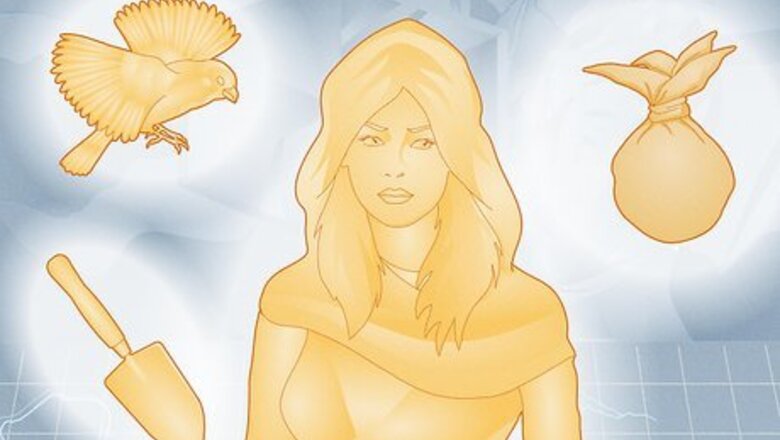
views
- Folk hero characters come from a modest social rank and start with simple professions but rise to become champions in their home village.
- All folk heroes have a “defining event” that leads to being recognized as a savior. They might save their town from disaster or lead a rebellion, for example.
- Folk heroes also get the “rustic hospitality” feature, meaning common folk willingly protect and shelter them—though they won’t put themselves in danger.
What is Folk Hero in D&D 5e?

Folk Hero is a background that makes your PC a humble champion. In D&D 5e, backgrounds reveal your character’s past, how they became an adventurer, and their place in the world. As a folk hero, your PC has humble origins—but they’re already a champion to their home village and determined to carve out a greater destiny for themselves by defending the common folk from monsters and tyrants. Skill proficiencies: Animal Handling and Survival Tool proficiencies: One type of artisan’s tools and vehicles (land) Equipment: A set of artisan’s tools, a shovel, an iron pot, a set of common clothes, and a pouch with 10 gold pieces.
Folk Hero Features
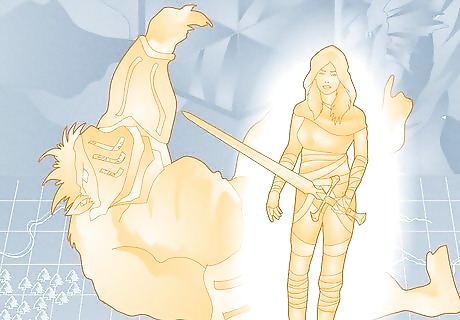
Defining Event Every background gets one or two unique “features,” which are perks for your PC based on their history. PCs with the folk hero background may have had an ordinary job at first, but their “defining event” determines what set them on the path of an adventurer and made them heroes in their hometown! Examples of a defining event include: I defended my town from a tyrant’s soldiers. I was promoted to a leadership position in a lord’s army for my heroism. I rescued villagers when a natural disaster struck. I stood against a fierce monster and defeated it, even while others ran. I took a stand against my town’s corrupt merchants, robbing them to help the poor. I rallied a local militia to fight off an invasion force. I trained the local peasants and taught them to defend themselves against bandits. I raided a tyrant’s fortress and armed the masses with the weapons I stole. I led a successful protest against the local lord’s unfair decrees. A magical entity (like a celestial or fey) blessed me—or revealed my hidden origins.

Rustic Hospitality Rustic Hospitality is the second feature associated with the folk hero background. With this perk, your heroic PC fits in with the common folk and can always find a place to hide, rest, or recover among them. Commoners will give them shelter and shield them from the law (or other pursuers), but won’t risk their lives for your PC. For example, your folk hero PC could easily ask for a place to stay for the night and warm food at a local farmstead. The farmer would lie to soldiers trying to arrest your PC—but if they attacked, the farmer wouldn’t step in to help. Keep in mind that commoners won’t help your PC if it seems like you’re a danger to them. For example, if you threaten a farmer with your weapon to get what you want, they might not cooperate.
Folk Hero Characteristics
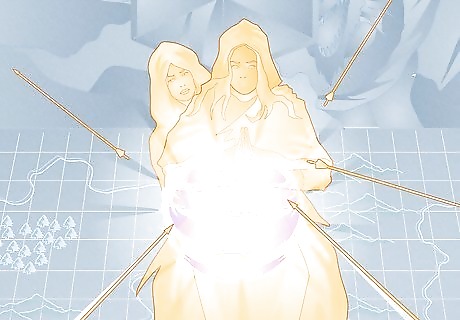
Personality traits Personality traits in D&D 5e are the smaller details that make your character feel real and unique. The Player’s Handbook recommends choosing two personality traits for your PC—but in reality, you can give them as many as you like. Some suggested traits for a folk hero include: I will always help if someone is in trouble, no questions asked. Words are meaningless. I judge people by their actions first and foremost. I accomplish whatever goal I set my mind to. Nothing gets in my way! I prefer to act first and think later. Sometimes, I misuse big words when I’m trying to sound smarter. I have a strong sense of fairness and justice. I always look for the most equitable solution. I believe in myself and do my best to spread that confidence to others. I’m easily bored and eager to finally achieve my glorious destiny!
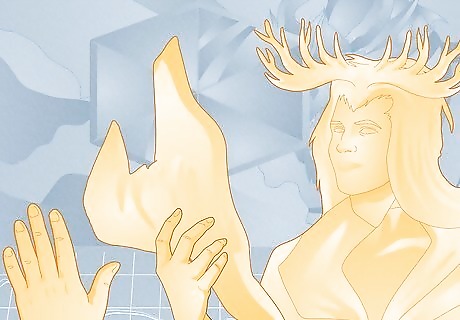
Ideals Ideals determine your PC’s philosophy, values, and outlook on life. Do they believe in the power of good, evil, or neutrality and balance? Are they champions of justice or agents of chaos? In short, how does your PC view the world—and what kind of impact do they want to have on it? Examples of ideals include: Respect. I believe in treating people from all walks of life with dignity. (Good) Power. When I’m strong, I can do whatever I want and take anything I like. (Evil) Sincerity. Why pretend to be something I’m not? Honesty is always preferable. (Neutral) Freedom. I oppose tyrants and those who would use their power to oppress people. (Chaotic) Fairness. The law applies to everyone, and nobody should get special treatment. (Lawful) Destiny. I have a higher calling in life, and nothing can deter me from it. (Any)
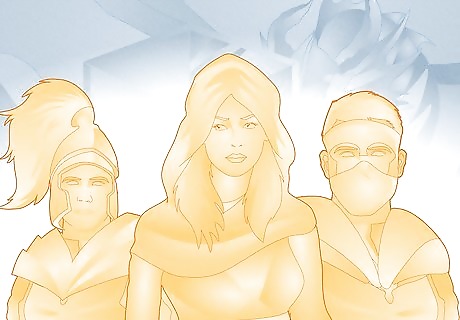
Bonds Bonds are essentially your PC’s connection to various people, places, and events in their world. A bond might determine your PC’s current goals or their motivations for becoming an adventurer and pursing a heroic destiny. Examples of folk hero bonds include: Revenge drives me. A noble once beat me, so I'm determined to stop any bully I meet. I’m sworn to protect the land that I once worked and still love dearly. After seeing too much suffering, I now protect those who can’t protect themselves. I have a childhood sweetheart and had to leave them to pursue my destiny. I carry my old tools with me as a reminder of my past life. I don’t know where my family is, but I hope to find them again someday.

Flaws Flaws are your PC’s greatest weaknesses. More than simply bad habits, flaws are the things that truly terrify your PC, make them angrier than anything else, or cause them to act without thinking. Consider what your PC’s ultimate flaw might be, based on their folk hero past. For example: I’m so convinced of my great destiny that I’m blind to my shortcomings. Trust is difficult for me, and I struggle to have faith in my allies. I can never go home. The people there know a shameful secret from my youth. I have a mortal enemy. The tyrant in my land wants me killed at any cost. The city is full of vices, and I have a weakness for them all—especially hard drink. I secretly believe I should be a tyrant imposing my rule over the land.
Folk Hero for Each 5e Class

Barbarian Want to tailor your PC’s folk hero background to their class? Go for it. You can be a folk hero regardless of class—and each one presents a unique opportunity to create a fun, interesting character. For example, barbarians fit the description well; they tend to come from humble places, and their hardiness helps them fight overwhelming odds. Trait: I have so much pride that I never back down from a challenge. Ideal: Honor. If I dishonor myself, I bring dishonor upon my whole clan. Bond: I was cursed by a spellcaster I faced in battle, and I still need a cure. Flaw: I’m gullible and easily tricked by others.
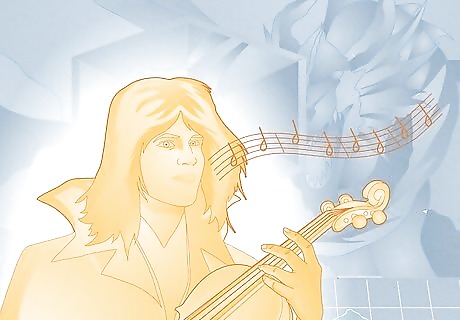
Bard Bards channel their magic through song and spoken word. With a folk hero bard, consider whether their heroism is real—or whether it’s been dramatized through their poems and songs! Still, a bard can absolutely be a true folk hero; they might inspire the masses with a stirring ballad or drum up opposition to a tyrant with propaganda. Trait: I take down nobles, kings, and powerful tyrants with naught but well-placed words. Ideal: People. I like seeing everyone in my audience smile as I perform. It’s what I live for! Bond: My instrument reminds me of someone precious to me, and I carry it always. Flaw: I’m obsessed with the idea of fame and want it more than anything.
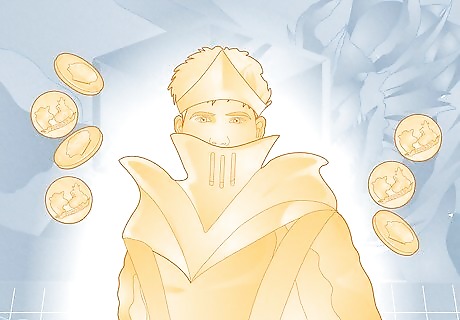
Cleric As warrior-priests in service to the gods, clerics make excellent folk heroes, especially when devoted to gods that believe in helping others (or accruing power at any cost). You might play a self-sacrificing cleric who would give anything to their cause or a humble cleric who never forgets their youth as a commoner. Trait: Helping the masses makes me feel closer to my patron deity. Ideal: Charity. I distribute my money to the people who need it most. Bond: I would give anything to recover a precious, long-lost artifact of my faith. Flaw: Sometimes I’m so scared of making a mistake that the feat paralyzes me.
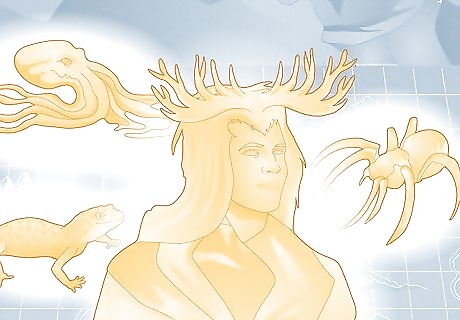
Druid Druids draw power from nature—so a druid folk hero might be renowned for protecting the wilds as much as nearby towns and villages. They might calm a beast preying on locals, for example, or stop a natural disaster (like a flood or storm) from destroying a town. They may even be a healer living out in the woods that local peasants turn to for help! Trait: I get uncomfortable with all the attention that comes with my fame. Ideal: Freedom. Everyone has the right to pursue a livelihood as they see fit. Bond: If someone harms the wilderness of my home, they harm me—and provoke my wrath. Flaw: I have a poor sense of direction and often wander off or get lost.
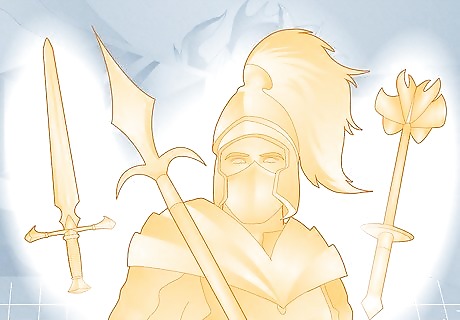
Fighter Fighters are martial combatants through and through—so a folk hero fighter might be a distinguished military official, someone who has an outstanding reputation among other soldiers or militia members. They might have learned their craft from a knight who recognized their worth—or trained hard and rose through the ranks of an army. Trait: I’m plagued by guilt because I was the only member of my unit to survive. Ideal: Training. Hard work and sacrifice lead to success in the end. Bond: I was convicted of a crime I didn’t commit; I’m a fugitive from my own land. Flaw: I have the worst luck, and I don’t know why!
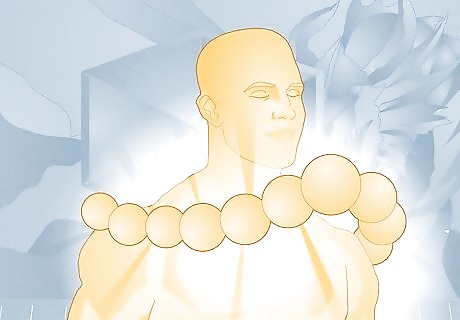
Monk Monks are martial artists who can attack without weapons. Your monk likely trained at a monastery of some kind—so consider what event led to their title as a folk hero. Did they pass through a town plagued by bandits and defeat them? Did they fight with a king’s army or for an important cause? Trait: I left my monastery to see the world, but I didn’t know how dangerous it would be. Ideal: Tradition. I believe that all traditions and stories must be preserved. Bond: The people who fight with me are worth risking my life (and dying) for. Flaw: I’ve taken a vow of poverty and have no material possessions at all.
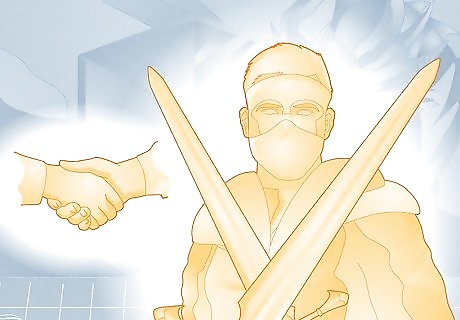
Paladin Paladins are holy warriors who channel power through sacred vows—so consider what vows a folk hero paladin might make. They might be a kindly knight errant or a vengeful warrior determined to slay a monster (and save villages in the process). They were likely a peasant before taking their vows, so consider how that affects their outlook on life! Trait: I made my vow on the day of my defining event, and have felt holy fires burning within ever since. Ideal: Logic. Emotions should never cloud my sense of what is right and true. Bond: You may never have heard of my village, but it’s the most special place in the world. Flaw: I’m obsessed with my work to the detriment of personal relationships.

Ranger Rangers are warriors who walk the line between civilization and nature, so they’re a perfect fit for the folk hero background. Your PC might have been a scout for their village or fought in a war and gained experience in the military before taking to the wilds. If your ranger has an animal companion, think about how that might fit into their defining event! Trait: I avoid my town because I always get so much attention and adoration there. Ideal: Wanderer. I go where the road takes me, and travel from place to place. Bond: I’ve lived in exile, but one day I’ll reclaim my land from the person who stole it. Flaw: I can’t let go of a traumatic event, and it still sways my actions.

Rogue Want to walk the line between lawbreaker and rebel with a heart of gold? Rogues are trained in thievery and subterfuge—so a rogue folk hero might be a Robin Hood figure, stealing from the rich and giving to the poor. Perhaps they protest unfair taxation or swindle merchants who take advantage of the innocent! Trait: I can get away with anything if I have a charming smile and a sharp blade. Ideal: Generosity. The riches of the world should be shared by all. Bond: I helped people by robbing someone important, and now I’m wanted for it. Flaw: I’m secretive to a fault and keep things from close allies.
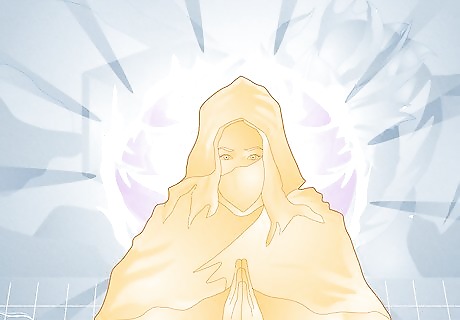
Sorcerer Sorcerers are spellcasters who get magic from their lineage, so a sorcerer folk hero might have lived a humble life before discovering the power in their blood. They might have used their magic to defend their hometown before leaving to learn more about their ancestor’s legacy, or they might have been chased out due to their strange abilities. Trait: My willpower is legendary, and I always finish what I start. Ideal: Competition. Everything is a challenge, and I aim to win. Bond: My ancestor was famous, and I want to surpass their legacy with my own. Flaw: I’m prone to emotional outbursts (and my magic acts up, too).

Warlock Warlocks get magic from making pacts with powerful entities! Perhaps your PC asked for powers so they could become a folk hero or were granted powers by a benevolent entity after proving themselves worthy. They might even have made a dangerous deal with a devil or demon—and though they’re noble at heart, are still beholden to their evil patron. Trait: I worry that people will think I’m a fraud if they learn of my pact. Ideal: Loyal. I’ll never let my friends down, even if I have to lie for them. Bond: I sold my soul for the power to liberate my village—but one day, I’ll win it back. Flaw: I’m reckless and often act without considering the consequences.

Wizard Wizards are scholars who study to master magic, which might seem unlikely combined with a folk hero—but characters like Gandalf the Grey prove that it’s possible! Your PC might have earned their apprenticeship by using a spell scroll to save a village, joined an army as a spellsword, or studied hard to learn how to defeat a particular legendary monster. Trait: I still remember my roots despite my magical training—and I’m an equally skilled farmer. Ideal: Knowledge. My life's work is a series of texts related to a particular field of knowledge. Bond: My isolation gave me insight into a powerful evil that I alone must defeat. Flaw: I desire power, and there’s nothing I wouldn’t do to get it.












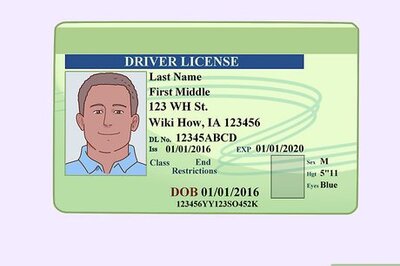




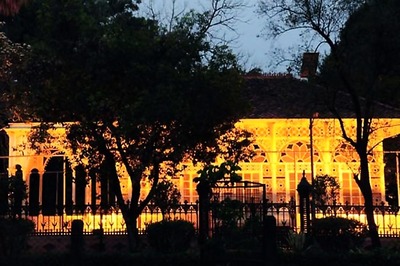

Comments
0 comment